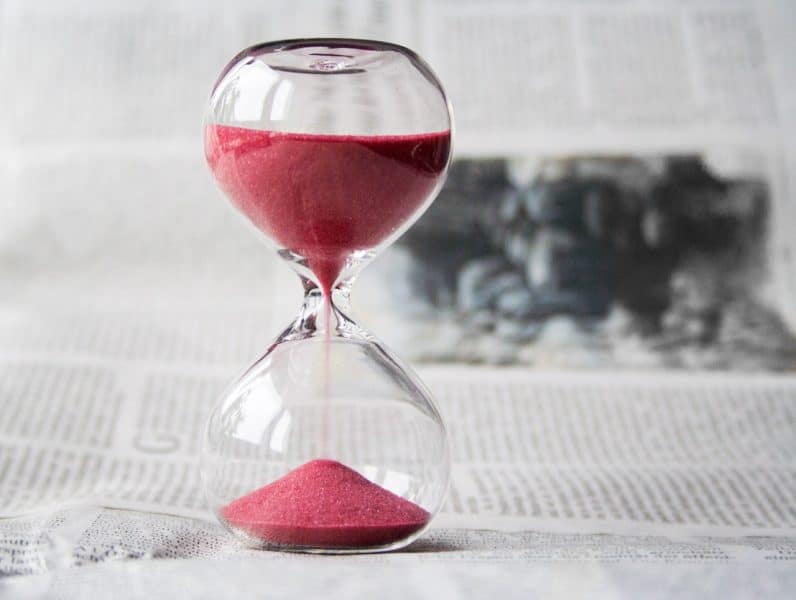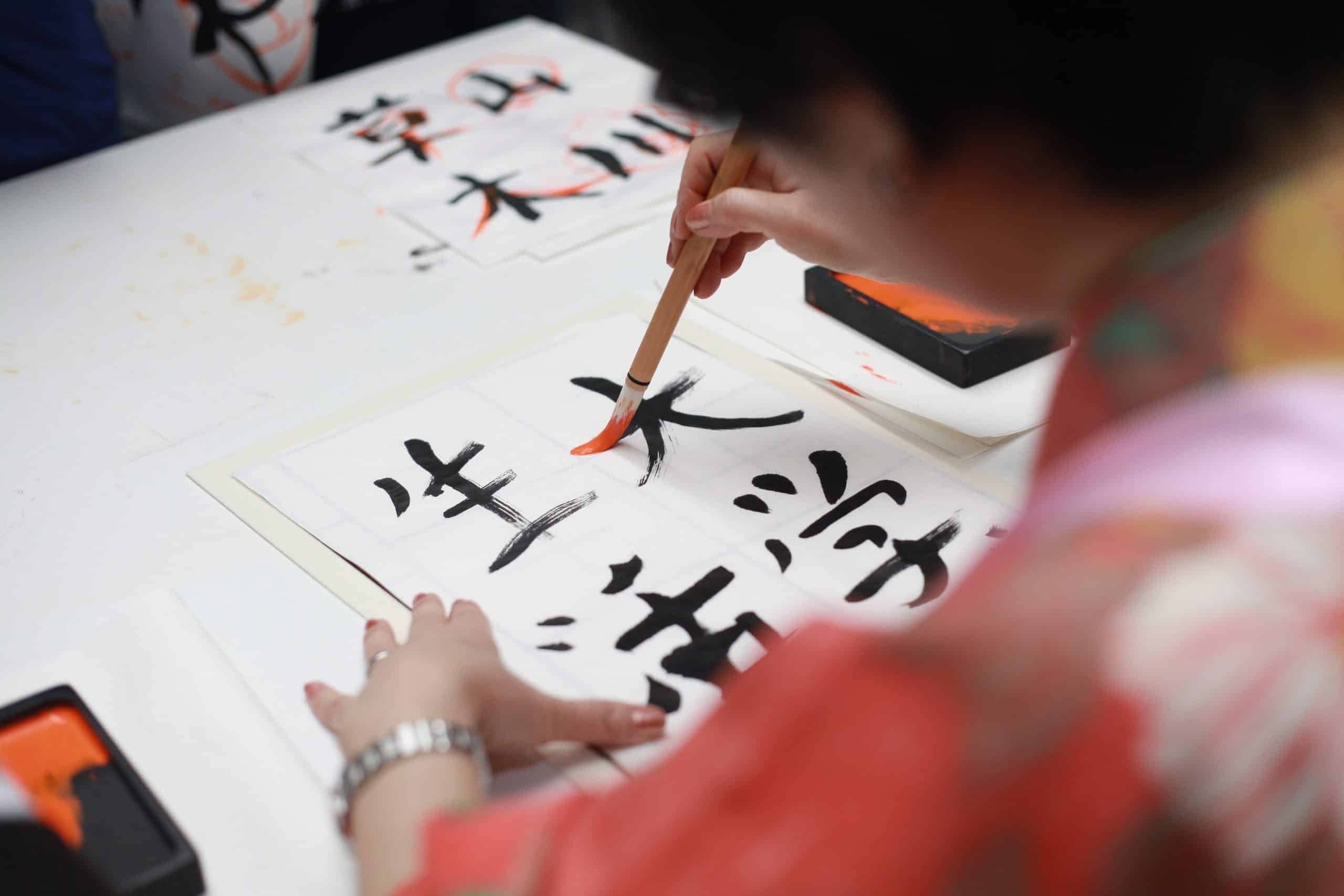If you find yourself falling in love with Japanese and getting serious about studying, you might eventually ask yourself, “How long does it take to learn Japanese?” or “Can I really master this?”
Anyone who has an interest in Japanese culture or who dreams of one day walking across the crowded Shibuya intersection is going to want to pick at least a few conversational phrases in Japanese. Although Japan has been changing and has plenty of English to go around, speaking the language, mastering it, and truly communicating with the Japanese is an indescribable feeling.
As someone who has not only lived in Japan for 8 years on and off but also studying and mastering Japanese for over 10 years, I know you too can learn Japanese. I’m going to give you tips and tricks, as well as honest advice, for gaining fluency in Japanese.
My Experiences Learning Japanese
So, who am I and why am I talking about learning Japanese? As I mentioned above, I’ve been living in Japan on and off for over 8 years now, passed the JLPT N2 a few years ago, studied at a Japanese Language School and a university, and even worked with multiple corporations, translating their websites and teaching their employees to speak English. However, I would have never gotten to a point of fluency if I wasn’t 100% invested in learning the language and immersing myself in it as much as humanly possible.
I started studying in high school. My friends and I had an interest in Japanese anime, so we naturally began picking up vocabulary words.
Studying in Japan
When I graduated high school, I spent a year in college, studying Japanese with Rosetta Stone, before I signed up for an immersive course in Tokyo that would be 3 months long with class 6 days a week, 5-8 hours a day. The first round, I tested into Level 2, but it became clear that Rosetta Stone had failed with teaching me some cornerstone pieces of the language, like adjectives, and some verb tenses, so I discussed with my sensei that I wanted to move down to Level 1.
Within the first 3 months, I studied well over 600 hours and was able to carry a short conversation in Japanese with my international classmates. After a short break, I returned to the same school for a full year of study. I ended up skipping Level 2, because I had studied nonstop with the textbooks during my brief return to the States and tested into Level 3. From there, every 3 months I advanced to the upper echelons of the school, learning basic conversation, business conversation, and even keigo.
When I came back to America to get a degree, I took a Japanese course at the university. Much to my surprise, and the instructors, I tested out of the highest level offered at the university but was allowed to take the course for credit nonetheless.

Living and Working in Japan
In 2015, I headed back to Japan, got a job that required me to speak business-level Japanese and do interviews using keigo.
Chronologically speaking, my intense studies ranged from 2010 to 2012, followed by general life in Japan up to 2018. Within those two years at the language school, I learned more than enough to survive and could read and write advanced kanji.
Obviously, you might not have the same chance I did to just drop everything and go over to Japan to study the language nonstop. So what do you do? How many hours does it take to learn Japanese if you cannot immerse yourself in it every single day? Don’t worry. It’s doable.
How Long Does It Take To Learn Japanese At a Basic Level?
As with any kind of skill, the more you practice, the faster you will gain knowledge and command of Japanese. Many people find that speaking Japanese is easier than reading and writing Japanese, especially if English is your first language. In fact, Japanese is one of the most difficult languages to learn for a native English speaker.
If you want to speak enough Japanese to make friends in Japan and carry on simple conversations, you can master casual Japanese in under a year, especially if you are skipping over hiragana and katakana.
Of course, you should never scoff at hiragana. Japanese people use text messages ruthlessly, so you should at least learn to read hiragana. Plus, you get pronunciation practice.
Hiragana, if you are willing to practice quite a bit, can be mastered in 1-2 days. The same is true for katakana. Since a lot of katakana is connected to English words that have been assimilated into Japanese language, you will be able to double pronunciation practice along with learning foundation words.
That means you pick up words you already inherently know and two writing styles in under 2 weeks. The best part? You’re learning basic conversation at the same time.
But here is where the issue begins: grammar. About the time you are confident enough to pick up grammar and start making your own sentences based off of what you know, it will be anywhere between 2-4 months.
Everyone is different, though, so if you are motivated and are diligently studying, you could speed up this entire process by leaps and bounds.

Hours Required For JLPT Levels
There are unfortunately no concrete standard for the amount of time required to pass each JLPT assessment. It also depends on your comfort level with taking exams.
The Japanese Language Proficiency Test Association has laid out some numbers that serve as a general guidelines—but are by no means exact. For example, the association says you need 900 hours of study to pass the N1. The U.S. government, on the other hand, states you need 2,200 hours of consecutive study to pass. This includes the U.S. Foreign Service Institute estimate, since they have put Japanese in Language Group V (exceptionally difficult for native English speakers). If you have no prior background of kanji, then passing the JLPT N1 might take about 3,000-4,800 hours to pass.
Now, the language school I went to created class content based on what was on the JLPT N5-N1. So, even with 3 months of study, I might have been able to pass the N5. Most students that studied at the language school for 1-2 years could eventually pass the N2 or N1 with flying colors. But that was with 8 hours of study every single day of the week for those 1-2 years.
Your Time Commitment Will Determine How Fast You Progress
Depending on your goals, the amount of time you dedicate to Japanese is going to play a major role in how quickly to reach the level of comprehension you want.
For hypothetical purposes, let’s say you want to reach an intermediate level for doing business in Japan. I can immediately come up with four scenarios for studying: taking a Japanese course at a local educational institution, one year at a Japanese language school, total immersion (school, work, and living in Japan), or dedicated self-study.
Let’s have a look at the time breakdown:
1. Japanese course
This could be a 90-120 minute class several times a week, with homework, independent practice, and other supplemental materials. If you do 2-3 courses a year, it will take around 8-10 years to reach intermediate level. Why? Most of the time, you are not immersed and are instead using rote memorization, English translations, and still speaking in English to your classmates.
2. Japanese language school
You might have 4-8 hours per day in class, 5-6 days a week. You also have homework, presentations, projects, clubs, and activities that will add additional study time. It could take 4-7 years, depending on your starting point.
3. Total immersion in Japan
You are in Japan, working at a convenience store, and also studying at a Japanese language school. This will take about 3 months to 1 year to get to intermediate level, because every single day is going to give you experience and requires you to immediately memorize what is happening.
4. Independent study
Depending the length of your study time every day and how often you can practice alone, such as having speaking practice over Skype, listening to podcasts like JapanesePod101, reading and writing the writing systems, and actively trying to utilize kanji, you can learn intermediate level Japanese within 1-3 years.
As you can see, time plays an important role. Languages that are different from English will tend to take longer than those with similar grammatical patterns or roots. Although there are some loan words, you will need to grasp the foundations before advancing, and that can take a while, even with hours of study.

Recommended Study Plan For Japanese
There are multiple routes for studying Japanese. Depending on your goals, some routes are going to be more suitable than others.
First, be real with yourself. Answer these questions:
- Are you a total beginner? Or do you have some prior knowledge of the language?
- How much hiragana and kanji do you know?
- How much time do you have throughout the week to study?
- What is your learning style?
- Do you plan on just traveling to Japan? Or do you plan on doing business?
- Do you dream of moving to Japan?
- Would you prefer to learn alone or with someone else?
- Do you want to pass the JLPT N2 or N1 in the future?
Your answers will shape your choices.
Those who want to level up as fast as possible should go to a Japanese language school that provides total immersion. This is the fastest way to get comfortable with speaking, reading, and writing Japanese.
Since there is more structure in courses and immersive experiences, I’m going to outline an independent study plan instead that starts from zero.
Beginning Your Japanese Study
- Every day, select periods where you have 1-3 hours to study. This can be 1 hour in the morning during your commute to listen to a Japanese podcast. Then, you could do 2 hours with a textbook or a language tutor in the evening.
- Start with hiragana, working on one series at a time. For example, work on recalling ra-ri-ru-re-ro first then move onto sa-shi-su-se-so and so on.
- Next, move onto katakana. Follow the same outline for hiragana.
- After you can consistently work with hiragana and katakana, choose 20-50 beginning kanji for simple words, like “Japanese,” “people,” and “tree,” to give you a foundation.
- Use a language app, like Duolingo Japanese or JapanesePod101 to supplement your study.
Furthering Your Japanese Study
- Once you can read and write hiragana and katakana and have about 30 kanji memorized, you can then pick up a Japanese language textbook. Many courses use Genki I & II, but I personally prefer Minna no Nihongo I & II, Sou Matome JLPT books, and those books that help you learn with manga.
- Start with beginner grammar patterns. Work on this at your own pace.
- Progress through the beginner level books and apps or podcast lessons, filling out the exercises in the textbooks. Since most textbooks come with CDs for audio practice, you should be listening to those as well. This repeats for intermediate and advanced level.
- Choose fun content—music, manga, anime, J-drama—that you can watch with and without subtitles or listen to at native speed. See how much you can pick out over time. Write down words in hiragana that you don’t understand then look them up to add to your vocabulary. Even if this is only 30 minutes, 5 days a week before bed, it will help.
- Repeat for every single JLPT level, until you can get to the level you have aspired to reach.
- You might want to try Rosetta Stone for speaking practice, iTalki or Skype for conversations, NHK for listening practice, and buying Japanese manga and children books for learning how to read complete sentences.
Since you are working at your own pace, this is all based on how much time you can allot to your study period. However, if you enjoy the language and are having fun learning, you can pick up a lot of Japanese rather quickly.
Overtime, your understanding will improve. To become a native level speaker, however, you will need someone who is a native Japanese language speaker who can converse with you in Japanese to get you thinking in Japanese.
Once you can do that, you will feel a sense of understanding and, later on, mastery.

So, How Long Does It Take To Learn Japanese? How Many Hours?
In the end, most people agree that mastering Japanese at the native level can take anywhere between 2,200-4,800 hours of intense studying. Yet, that does not always have to apply to you. If you are motivated to learn and are using the resources available to you, listening, talking, and writing, then you can minimize the length of time it takes to learn Japanese. Don’t give up and have fun with the journey! It is worth every step.
If you liked this article, you might also be interested to read Michael and Rohan’s experience learning Japanese.
Valerie has lived in Japan on and off for over 8 years while working, studying, and dancing. She is interested in language acquisition, psychology, dance, and Japanese culture, and she devotes most of her time traveling around Japan and the rest of the world, teaching dance and yoga, and working as a freelance writer and graphic designer.




Anyone who has an interest in Japanese culture or who dreams of one day walking across the crowded Shibuya intersection is going to want to pick at least a few conversational phrases in Japanese.